Special education teachers offer a complementary service to regular teaching. They work mainly with students dealing with learning disabilities.
What is the special education process?
The role of special education teachers is to give individualized support to students who are having specific or ongoing difficulties in mathematics or languages (spoken or written). Their work usually consists of two phases:
- First, they evaluate the problems encountered by the student with spoken and written language, logical and mathematical reasoning, and psychomotor development. They evaluate the child’s knowledge, strategies used, and cognitive process.
- Second, special education teachers give students tools and help them develop corrective or compensatory learning strategies adapted to their needs.
Special education support often occurs in collaboration with other professionals such as neuropsychologists, psychologists, speech-language pathologists, and occupational therapists. The personalized education plan suggested by the special education teacher takes these specialists’ recommendations into account.
If the child has not yet undergone a multidisciplinary evaluation, our special education teacher will determine whether a complementary evaluation is needed and advise parents accordingly.
Special education teachers don’t work exclusively with students dealing with specific learning disorders. They also help those who are at risk of developing academic difficulties by giving them educational strategies and tools that will help them succeed.
 TEACHERS
TEACHERS
SERVICES OFFERED BY OUR TEACHERS:
- Ongoing support for any subject
- Remedial activities and exercises
- Homework help
- Exam preparation
- Secondary school admission exam preparation
- Development of learning strategies and work methods adapted to each student
- Improvement of self-reliance and self-confidence
- Support for parents
Special education services can help students who are struggling with any of the following:
- Attention deficit disorder with or without hyperactivity (ADD/ADHD)
- Difficulties related to memorization
- Difficulties related to cognitive strategies
- A diagnosed learning disability, such as dyslexia, dysorthographia, dyscalculia, or a non-verbal learning disorder
A special education consultation should be considered if your child is showing any of the following signs:
- Ongoing academic difficulties
- School-related anxiety
- Lack of motivation
- Disruptive behaviour in class
- Ineffective studying methods
- Inability to keep up in class and poor grades
Centre d'aide aux études Outaouais
58, chemin Old Chelsea #205 I Chelsea, Québec I J9B 1K9 I T 819 827-0006 I info@mieuxapprendre.ca
© 2024 Centre d'aide aux études Outaouais - Tous droits réservés. Conception du site: 4UATRE 5INQ ZER0 COMMUNICATION

